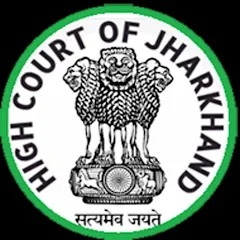
Jharkhand High Court: Muslim Husband Cannot Use Personal Law for Conjugal Rights Under Special Marriage Act
Court says once marriage is under Special Marriage Act, all rights and remedies flow only from statute
Verdict reinforces equality in matrimonial law and limits misuse of personal law in secular marriages
By Our Legal Reporter
New Delhi: November 22, 2025:
In a landmark ruling delivered on 21 November 2025, the Jharkhand High Court clarified that a Muslim husband cannot invoke Muslim personal law to claim restitution of conjugal rights when the marriage was solemnised under the Special Marriage Act, 1954 (SMA). The Court held that once parties choose to marry under the SMA, their rights, remedies, and obligations must arise solely from that statute, irrespective of their religious background.
Also Read: Supreme Court Clarifies Governors’ Powers: No Indefinite Delay on Bills
The decision came in an appeal filed by a Muslim husband whose petition for restitution of conjugal rights under Section 22 of the SMA had been dismissed by the Family Court. He argued that as a Muslim, he was entitled to marry multiple women and that his wife’s departure from the matrimonial home was unjustified.
Background of the Case
The husband had approached the Family Court seeking restitution of conjugal rights after his wife left the matrimonial home. His plea was dismissed, leading him to file an appeal before the Jharkhand High Court.
A Division Bench of Justice Sujit Narayan Prasad and Justice Rajesh Kumar heard the matter. The husband contended that his personal law permitted him to marry up to four women and therefore his wife’s refusal to live with him was not valid.
The Court rejected this argument, holding that once parties solemnise their marriage under the Special Marriage Act, they are bound by its provisions, which recognise monogamy and equality between spouses.
Also Read: Gratuity After One Year: Landmark Labour Law Reform Brings Relief to Millions
Key Observations of the Court
- SMA overrides personal law: The Court ruled that marriages under the Special Marriage Act are governed entirely by the statute, not by personal religious laws.
- Restitution of conjugal rights: Section 22 of the SMA provides for restitution of conjugal rights, but the right must be exercised within the framework of the Act.
- Monogamy principle: The Court emphasised that the SMA recognises monogamous marriages, and a husband cannot rely on personal law to justify polygamy.
- Equality in marriage: The ruling reinforced that both spouses have equal rights and obligations under the SMA.
- Inherent right of marriage: The Court observed that restitution of conjugal rights is inherent in the institution of marriage but must be exercised lawfully.
Why This Matters
Also Read: India Grants First Smell Trademark: Rose-Scented Tyres Make Legal History
This ruling is significant because it addresses the intersection of personal law and secular law in India. By clarifying that the SMA overrides personal law, the Court has reinforced the principle of legal uniformity in marriages solemnised under secular statutes.
Impact on Muslim Husbands and Families
- No reliance on personal law: Muslim husbands who marry under the SMA cannot later invoke personal law to justify polygamy or other practices.
- Greater protection for wives: Women married under the SMA enjoy equal rights and cannot be forced into polygamous arrangements.
- Legal clarity: The ruling provides clear guidance for families choosing to marry under the SMA.
Impact on Judiciary and Society
- Strengthened secular law: The judgment reinforces the supremacy of secular statutes over personal laws in specific contexts.
- Reduced misuse: Prevents misuse of personal law to undermine statutory protections.
- Social equality: Promotes gender equality and fairness in matrimonial relationships.
Expert Reactions
Legal experts hailed the verdict as a progressive step in matrimonial law.
Also Read: Supreme Court Says Investigations Cannot Continue Endlessly: Right to Speedy Probe Strengthened
- Senior advocates noted that the ruling strengthens women’s rights under the SMA.
- Academics highlighted that the judgment reinforces secularism in family law.
- Practitioners said the decision will reduce litigation over conflicts between personal law and statutory law.
Broader Context
The Special Marriage Act, 1954 was enacted to provide a secular framework for marriage, allowing individuals of different religions or those who prefer civil marriage to solemnise their union. It ensures equality, monogamy, and uniform rights for spouses.
Over the years, courts have consistently held that once parties marry under the SMA, they cannot fall back on personal laws to claim rights inconsistent with the statute. The Jharkhand High Court’s ruling builds on this principle, making it clear that Muslim husbands cannot rely on personal law to claim restitution of conjugal rights under the SMA.
Also Read: Supreme Court Rules: Writ Jurisdiction Cannot Bypass Statutory Remedies
Conclusion
The Jharkhand High Court’s ruling that Muslim husbands cannot rely on personal law for restitution of conjugal rights under the Special Marriage Act is a landmark in matrimonial jurisprudence. By reinforcing the supremacy of secular law, the Court has ensured that marriages under the SMA remain governed solely by its provisions.
This verdict strengthens women’s rights, promotes equality in marriage, and limits misuse of personal law in secular contexts. It marks a decisive step towards clarity and fairness in India’s matrimonial law.
GEO Keywords
Also Read: Supreme Court Rules Property Suits Cannot Be Dismissed Summarily on Limitation
- Jharkhand High Court Muslim husband restitution ruling
- Special Marriage Act restitution of conjugal rights
- Muslim personal law vs Special Marriage Act India
- Justice Sujit Narayan Prasad Rajesh Kumar ruling
- Jharkhand High Court matrimonial law judgment
- Muslim husband polygamy Special Marriage Act India
- Restitution of conjugal rights SMA Section 22
- Jharkhand High Court verdict November 2025
- Secular marriage law India High Court ruling
- Women’s rights Special Marriage Act India